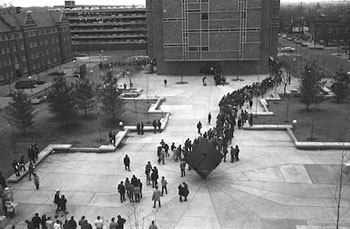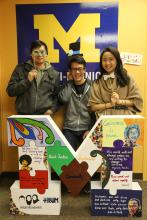MESA's engagement in communities, leadership development, and transformative education serve our unit’s vision where all members of our community are embraced, nurtured, and able to achieve their version of success.
Why give to MESA?
The Office of Multi-Ethnic Student Affairs is responsible for promoting student development and empowerment of the entire campus community around issues of diversity and social justice through the lens of race and ethnicity.
Your gift will help to enhance the success of students by building support communities through intellectual, social and cultural opportunities, promoting a healthy multicultural and respectful climate that allows for meaningful cross-cultural partnerships among student communities, and engaging students in efforts to further develop and deepens their intercultural skills and competencies.


